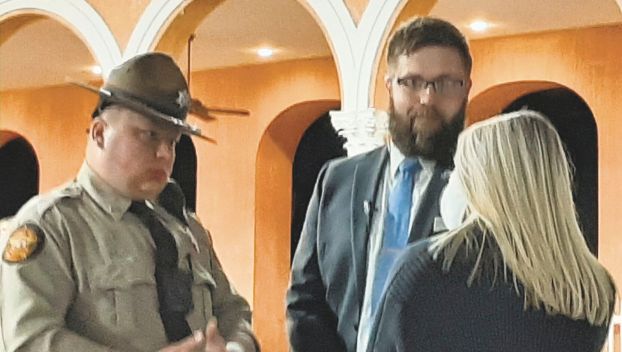
Ga Fl News
Television news crew threatened with arrest at Greene forum
DALTON — A Whitfield County Sheriff's Office deputy threatened to arrest a television news crew after a reporter ... Read more

DALTON — A Whitfield County Sheriff's Office deputy threatened to arrest a television news crew after a reporter ... Read more

DALTON, Ga. — As appropriate use of force in officer-involved shootings continues to generate discussion nationally, Whitfield County ... Read more

DALTON, Ga. — As appropriate use of force in officer-involved shootings continues to generate discussion nationally, Whitfield County ... Read more

DALTON, Ga. — Eight people might owe their lives to Whitfield County Sheriff's Office Deputy Shawn Giles, who ... Read more

DALTON, Ga. — Eight people might owe their lives to Whitfield County Sheriff's Office Deputy Shawn Giles, who ... Read more
DALTON, Ga. — Maybe fear of the new coronavirus (COVID-19) is keeping criminals indoors. Maybe it’s the “discretion” ... Read more
DALTON, Ga. — Maybe fear of the new coronavirus (COVID-19) is keeping criminals indoors. Maybe it’s the “discretion” ... Read more

DALTON, Ga. — A body found in September of last year in a white Nissan Sentra that was submerged in ... Read more

DALTON, Ga. — A body found in September of last year in a white Nissan Sentra that was submerged in ... Read more
DALTON, Ga. — The man who was shot and killed by a Whitfield County Sheriff’s Office deputy on Friday has ... Read more